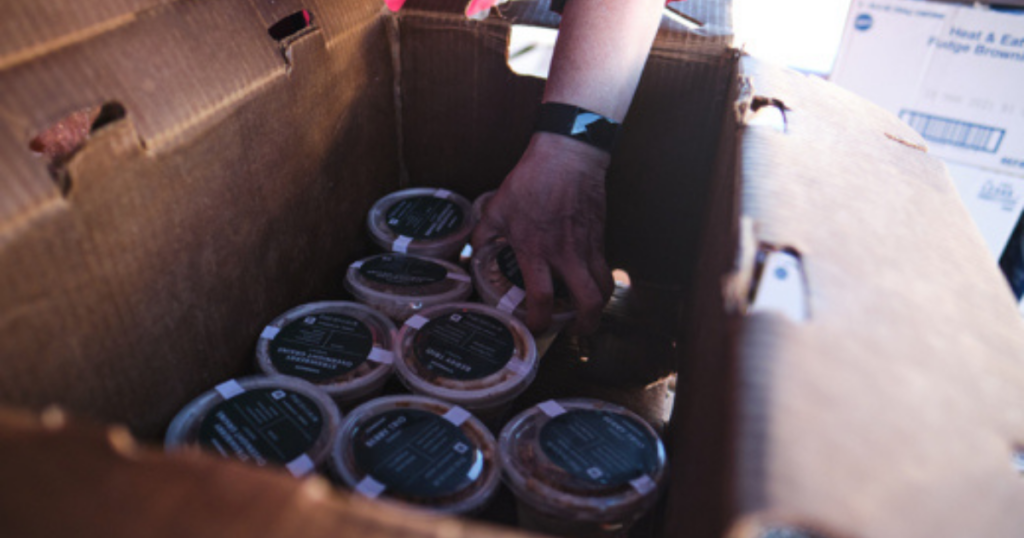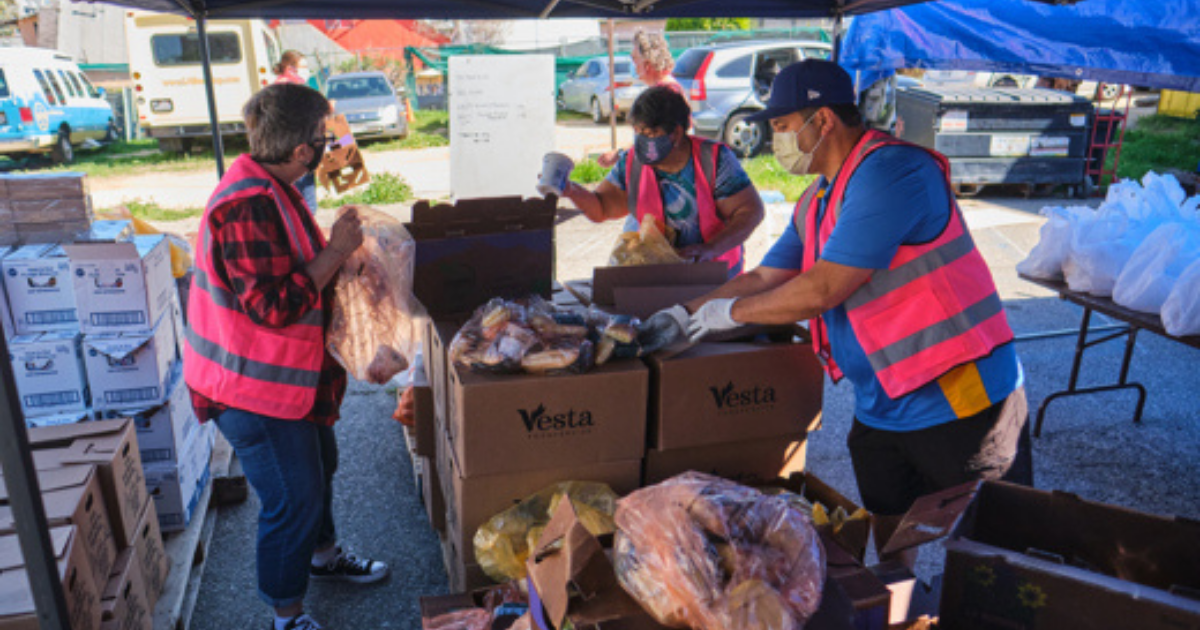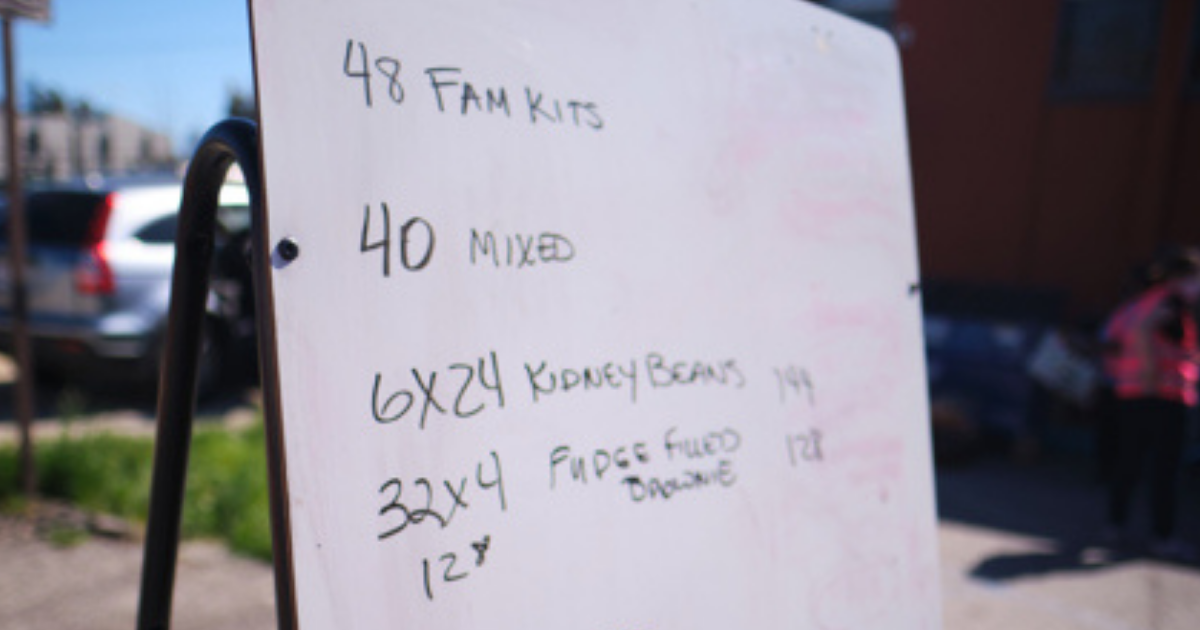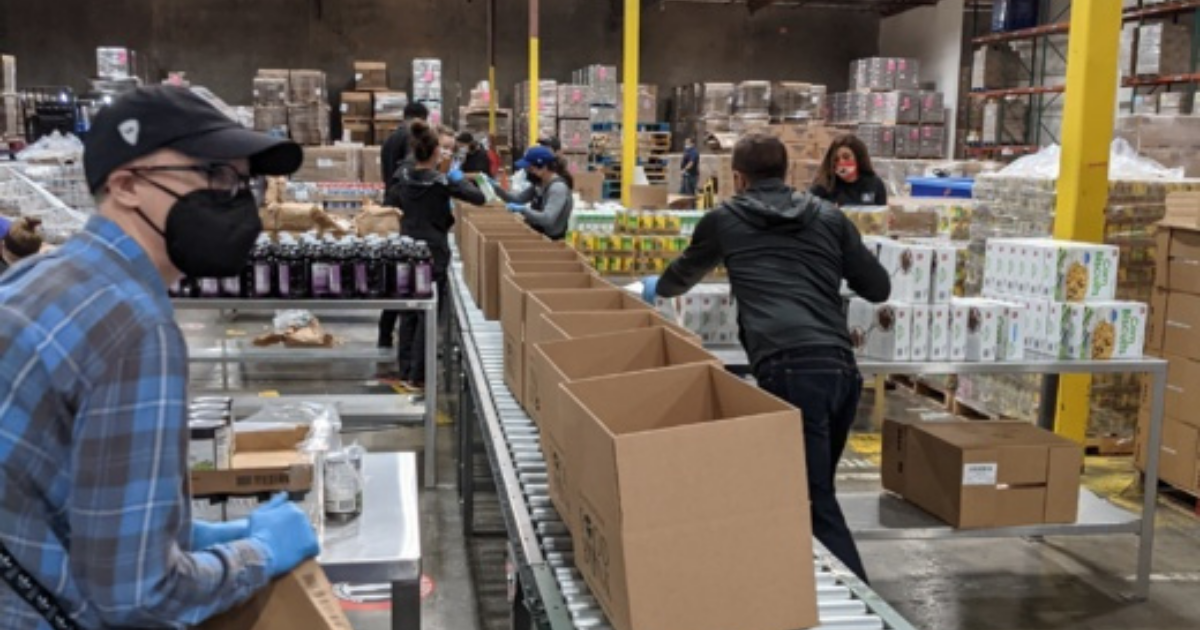
Tired backs, soaring hearts: chatting with food security volunteers
By GO HumanityFood insecurity is a tough crisis to face. What keeps front-line volunteers going? What can concerned people do, and why should they do it? And just how worth it is it, really? To answer some of these questions, we’re interviewing members of the five rockstar Beyond Belief Network teams we just tagged to receive grants through our Food Security Project. We’re featuring a new team each month, tossing volunteers a few questions to help humanize their work and people they serve.
This month we’re featuring Atheists United (AU). AU partners with the Los Angeles Food Bank to distribute thousands of pounds of food every month. In the past year, they have expanded to include pet food and other necessities at their distribution events.
Tom, AU Volunteer
How did your team get started?
The feeling of helplessness that gripped us all at the beginning of the lockdown. Then one of directors saw a video clip of people driving around passing care packages out their windows to hungry people. “We can do something like that” we agreed, so we did.
How did your team get started doing charity work?
Our food program is our first venture. The chaos and terror of the pandemic pushed us to follow through on vague ideas that had been floating around for a while.
What’s the biggest challenge your team faces to the work you do?
Finding repeat volunteers. We always have plenty of people, but we never know who’s going to show up. Without a clear picture of personnel in advance we can’t plan for much expansion.
What keeps you going?
The tangible high we all get at the end of each event. Tired backs, soaring hearts. Does that sound over the top? It’s not.

What have you learned from doing service projects that you can pass along to other teams?
#1: Publicity: how to reach people in need is not obvious. Access to internet and social media may be limited. Word of mouth works best but that takes time to build. Lots of flyers is basically what’s gotten us this far, but we keep looking for more effective medium.
#2. Logistics: the tighter the operation the smoother it goes. Think through the details of picking up the food, how the packaging process is physically laid out, and how packages are handed out — get granular.

What are your goals for the future of the team?
First, expanding this program, in number of families served, frequency of events, and possibly multiple locations. Beyond that, there are lots of valuable ways to be of service, with the pandemic winding down we expect we’ll see more great opportunities for us.
Marti, AU volunteer
What else can you tell us about your challenges helping people?
Our food distribution effort began several months into the pandemic. Since then, our partner in this effort, the LA Regional Food Bank, has experienced an enormous increase in demand for food. Consequently, the type and quantity of food we receive can be pretty random. Each month we risk having to spend unbudgeted money to purchase extra food. Without refrigeration or storage facilities, we must obtain and distribute the food all in one day. It can be stressful at times and is always exhausting. Masked and socially distanced, we decided to proceed with the food distribution even during the height of the pandemic.

What keeps you going?
For poor and working people living in Los Angeles, survival is precarious. Getting food to them is simply the right thing to do. That I get to go home knowing I helped a stranger that day is a huge bonus. Some of our own volunteers are food insecure yet they come from far and near to help keep our commitment to the community.
What lessons have you learned volunteering?
Just do it. Identify a problem, work out a solution, and go. Some of the clients we serve need pet food as well as groceries. Without fanfare, a volunteer created a successful Facebook fundraiser for the initial pet food purchase and now regularly solicits pet food donations from pet shops. Another volunteer found a way to obtain a carload of bakery and other items from a grocery chain. A caravan of cars picking up food at the Food Bank was a logistical nightmare so we now rent a truck. Happily, with one big truck, we are offered more food.
What are your future goals?
In addition to increasing the frequency of the food distribution events, I believe some of us are looking ahead to providing prepared meals to homeless encampments on a regular basis.
With just $2.50, you can help Food Security Project volunteers feed a person.

